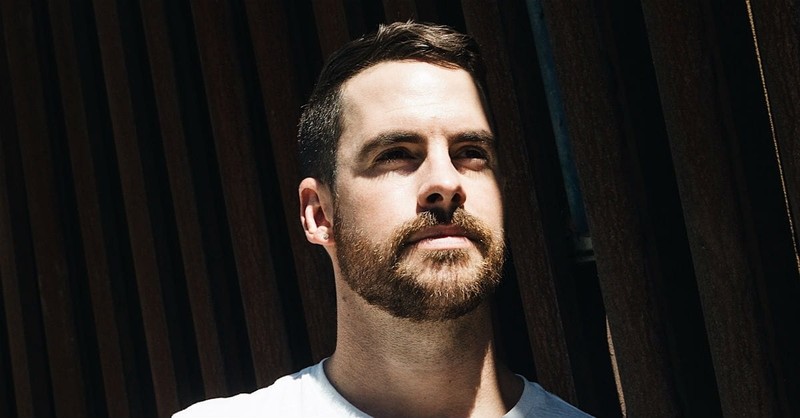
Feeling weary today? Distant from God? Anxious? Uncertain? In this article Tim Keller warms our hearts with seven breathtaking privileges of being a child of God set out by Paul in Romans 8:14-17:
"For those who are led by the Spirit of God are the children of God. The Spirit you received does not make you slaves, so that you live in fear again; rather, the Spirit you received brought about your adoption to sonship. And by him we cry, 'Abba, Father.' The Spirit himself testifies with our spirit that we are God’s children. Now if we are children, then we are heirs—heirs of God and co-heirs with Christ, if indeed we share in his sufferings in order that we may also share in his glory."
Photo courtesy: ©Unsplash

1. Security
We are not to fear, but enjoy sonship (v 15a). An employee or a servant basically obeys out of fear of punishment, loss of job, etc. But a child-parent relationship is not characterized by a fear of losing the relationship.
"For those who are led by the Spirit of God are the children of God. The Spirit you received does not make you slaves, so that you live in fear again; rather, the Spirit you received brought about your adoption to sonship. And by him we cry, 'Abba, Father.' The Spirit himself testifies with our spirit that we are God’s children. Now if we are children, then we are heirs—heirs of God and co-heirs with Christ, if indeed we share in his sufferings in order that we may also share in his glory."
Photo Credit: ©Unsplash

2. Authority
We have the status not of “a slave” but of “sonship” (v 15a). In a house, slaves have no authority. They can only do what they are told. But under their parents, children do have authority in the house—they are not mere servants. The children of God are given authority over sin and the devil. They are to move about in the world knowing that it belongs to their Father. There should be a confidence and poise about them. Children have the honor of the family name. There is a wonderful new status conferred on us.
Photo Credit: ©Unsplash

3. Intimacy
“By him we cry, ‘Abba’” (v 15b). We need to know the original language here. “Abba” was an Aramaic term which is best translated “Daddy”—a term of the greatest intimacy. A child does not always (or even often) address his father as “Father”; likely, he has a different term for him that shows his loving, trusting familiarity with his father, such as “Dad” or “Papa” or “Daddy.” And this is how Christians can approach the all-powerful Creator of the universe, who sustains every atom in existence moment by moment!
Martyn Lloyd-Jones is worth quoting here: “Let us notice the word ‘cry’… we cry ‘Abba, Father.’ It is a very strong word, and clearly the apostle has used it quite deliberately. It means ‘a loud cry’ … it expresses deep emotion … It is the spontaneity of the child who sees the father … and not only spontaneity, but confidence.” (Ro 8:5-17, pages 240-242)
Photo Credit: ©Unsplash

4. Assurance
"The Spirit himself testifies with our spirit that we are God’s children" (v 16). When we cry out to God as “Abba,” the Spirit of God somehow comes alongside us (“with our spirit”) and gives us assurance that we truly are in God’s family. There is a lot of debate about the nature of this “testimony,” but it appears to be an inner witness in the heart, a sense that yes, he really loves me.
Photo Credit: ©Unsplash

Notice something here:
Notice, Paul says our spirit is already testifying: “The Spirit … testifies with our spirit.”
This means we already have evidence that we are Christians. We know we trust Christ. We have his promises. We see our lives changing and growing. All these pieces of evidence lead our “spirit”—our hearts—to have a measure of confidence that we really are his. But Paul says that the Spirit can come alongside us and, in addition to all we see, “testify.” This seems to refer to a direct testimony of the Spirit in our hearts. This probably is a sense of God’s immediate presence and love that sometimes comes to us (something Paul has already spoken of back in 5:5). We don’t get this all the time, or even often; and it may not be a very strong feeling. But there will be times when, as we cry out to Abba, we find ourselves deeply assured that he really is our Abba. That is the Spirit’s work, testifying for us and to us that we truly are sons of the living God.
Photo Credit: ©Unsplash

5. Inheritance
“Now if we are children, then we are heirs” (v 17). This means we have an incredible future. In more ancient times, the first son was the heir. There may have been many children, and all were loved, but the heir got the largest share of the wealth and carried on the family name. This was the way a great family kept its influence intact and did not have it divided and dissipated. (Paul’s reference should not be read as either supporting or rejecting this practice. It is simply illustrative.) Now, in a breathtaking turn, he calls all Christians “heirs of God.” This is a miracle, of course, because the heir got the lion’s share of the parent’s wealth. Paul is saying that what is in store for us is so grand and glorious that it will be, and will feel, as though we each had alone gotten most of the glory of God.
Photo Credit: ©Unsplash

6. Discipline
“Now if we are children, then we are heirs … if indeed we share in his sufferings“ (v 17). Fathers always discipline their children. When parents discipline a child, they allow or introduce a milder form of pain in order to teach or mature the child away from behavior that will lead to far greater pain later. Hebrews 12:9-10 explains: “We have all had human fathers who disciplined us … but God disciplines us for our good.” A good father will lovingly discipline. He will not use his authority selfishly to indulge his own need to feel powerful or in control. But neither will he be so needy for his child’s love and approval that he never does what is hard or difficult. It is a (painful) privilege to be put through discipline by the most loving Father in the universe.
Photo Credit: ©Pexels

7. Family likeness
“We share in his sufferings” (Romans 8:17). Christians will suffer, not simply in the pains of this world that all people face, but specifically because they are brothers and sisters of Christ. Christ faced rejection because of who he was, and because he had come to expose sinfulness, warn of judgment and offer salvation through himself. Likewise, his family will suffer in the same ways as they live for him and speak of him. We get to be like him! God works in us and through our circumstances so that we would “be conformed to the likeness of his Son, that he might be the firstborn among many brothers” (v 29).
Photo Credit: ©Unsplash

Though we are adopted...
God actually implants Christ’s nature in us. As sons of God, we actually come to resemble the Son of God. As we bear the family likeness of suffering, we become more and more like the Son, and our Father, in our characters and attitudes. This is how the Christian looks at persecution and counts it as a privilege (eg: Acts 5:41; 1 Peter 4:13, 16). We get to be like him!
Discover the treasures of Romans 8 in 5 FREE devotionals by Tim Keller: click here to sign up now. This article has been adapted from Tim Keller’s Romans 8 – 16 For You.
This article originally appeared on TheGoodBook.com. Used with permission.
Timothy Keller was born and raised in Pennsylvania, and educated at Bucknell University, Gordon-Conwell Theological Seminary and Westminster Theological Seminary. He was pastor of West Hopewell Presbyterian Church, Virginia, for nine years before founding Redeemer Presbyterian Church in Manhattan, which he started in 1989 with his wife, Kathy, and three young sons.
SEE ALSO: How Can I Know that I am a Christian?
Photo Credit: ©Unsplash
Originally published Tuesday, 06 July 2021.




